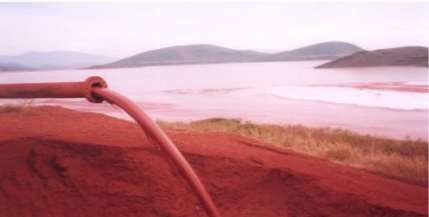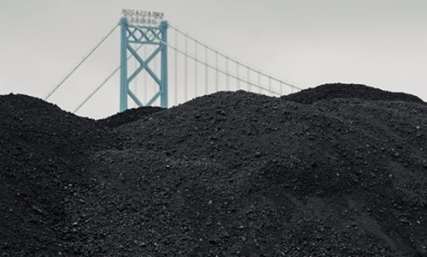1.1 INTRODUCTION:
India is witnessing construction of very interesting projects in all sectors of Infrastructure. Most of the structures are in structural concrete. In Present condition India is the second largest producer of cement in the world behind china. The construction practices are rapidly innovating throughout the world. The pace of infrastructure developments in India requires adoption of new technologies. The country consumed around 238 million metric tons of concrete in previous years. India’s concrete production is calculated to amount to just over 400 million metric tons by 2017.
Concrete is the most widely used man-made construction material in the world. The popularity of concrete is due to the fact that from the common ingredients, the properties of concrete are tailored to meet the demand of any particular application.
Now-a-days massive construction leads to scarcity of natural resources. It is a big problem emerging in field of construction because of their wide use shortage is happening. Due to this good sand is not available easily. Natural resources are also exhausting very rapidly because of its limited supply, the cost of Natural River sand has sky rocketed and its consistent supply cannot be guaranteed. So, now it is time to find some substitute to natural river sand. Hence, it is mandatory either to quest for another material or partly replace it by some other material. The expense of development moreover gets heightened further more leaving the waste materials to the environment straight forwardly can bring about natural issue. Henceforth the reuse of waste material has been emphasized.
Get Help With Your Essay
If you need assistance with writing your essay, our professional essay writing service is here to help!
There is a growing awareness regarding extensive damage being caused to the environment due to accumulation of waste materials from power houses, industrial plants, colliery pits, demolition sites and it has become one of the major environmental and social issues. Waste materials coming out of industry nowadays is posing a great environmental problem in disposing them into the water, air and on the land. These waste materials can partly be used to produce materials suitable as fine aggregates or fillers in concrete. Use of waste products is not only a partial solution to environmental. Some wastes can significantly improve the properties, matrix and microstructure of concrete. The output of these waste materials in India is more than the production of cement and other construction materials used in all the civil engineering activities. So, the use of waste materials is not only to make the cement concrete less expensive, but to provide a blend of tailored properties of waste materials and OPC suitable for specified purpose.
The waste materials which can be found in bulk are commonly known as blast furnace slag, fly ash, silica fumes, solid waste, plastic wastes, Red mud, Pet coke, etc. Partial replacement of Portland cement and sand with waste materials like blast furnace slag, fly ash, silica fumes, Red mud, pet coke, etc. will be a great help in reducing environmental pollution and also in reduction in manufacturing of cement and also minimize the use of natural materials that required for the construction activities. This research work outlines the optimum utilization of waste materials in some construction activities using as a green concept, which ultimately reduces the environmental pollution and suits the economy of project.
This study involves Industrial wastes which have major production throughout the world and have negative effect on environment because of their chemical properties. Industrial wastes in this study are Red mud, Petroleum coke and Recron with accelerating admixture.
Red mud is a waste material generated by the Bayer Process widely used to produce alumina from bauxite throughout the world. In India more than 20 million tons of red mud is generated annually. The Indian aluminium sector is characterized by large integrated players like Hindalco and National Aluminium Company (Nalco, Alumina plant at Damanjodi, Orissa). However, its high alkalinity is a potential pollution to threat water, land and air. While high costs are associated with the large area of land required for storage of the residue. Currently, it is dumped on land or in the oceans near alumina refineries which creates a great environmental pollution. Red mud is highly caustic due to which it is a good binder material and can be used in concrete technology for construction practices with partial replacement with cement. Among the uses utilization of red mud for building materials production such as cement, bricks, roofing tiles and glass-ceramic is in practice.

Fig.1 Red mud Yard
Petroleum coke (abbreviated as Pet coke) is a solid by product from oil refineries. It is a carbonaceous solid delivered from Coker units or other cracking processes. It has over 90% carbon. As it has a higher energy content, it emits 30% to 80% more CO2 than coal per unit of weight, it also emits sulphur and vanadium contents during combustion which can be problematic. The annual consumption of pet coke in India is around 14.44 million tons, according to the latest statistics of Ministry of Petroleum and Natural Gas, Government of India.
Find Out How UKEssays.com Can Help You!
Our academic experts are ready and waiting to assist with any writing project you may have. From simple essay plans, through to full dissertations, you can guarantee we have a service perfectly matched to your needs.
View our academic writing services
Pet coke can be used in concrete as a replacement of sand for acoustic application. The low density and high porosity properties of pet coke particles suggest that it may also have potential to improve the thermal insulating properties of concrete when added as fine aggregate. It can also be used as plastering, roof concreting, etc for light weight concreting.

Fig. 2 Petroleum coke yard
Recron is also called Polyester fiber. It acts as “secondary reinforcement” in concrete which increases resistance to impact and abrasion. It arrests cracks & improves quality of construction in tanks, foundations, walls, roads, pre-cast products like pipes, blocks, tiles, manhole covers, asbestos sheets, cement based pre-cast products, etc.
Role of Recron 3s is preventive in field of construction; it also controls reduction in water permeability, increase in flexibility, reduction in rebound loss, etc.
Admixtures are the additive in concrete other than basic ingredients of concrete; they are added to the mix immediately before or during mixing. These admixtures are used primarily to reduce the cost of concrete construction, to achieve the strength, modify the properties of hardened concrete, to ensure good quality of concrete during transporting, placing, mixing & curing and to overcome certain emergencies emerges during concrete operations. These can be added to concrete mix to produce high slump flowing concrete. High range super plasticizer was used in all the concrete mixes to achieve good workability. Super plasticizers are added to reduce the water requirement by 15 to 20% without affecting the workability leading to a high strength and dense concrete. To achieve the uniform workability, the admixture dosage was adjusted without changing the unit water content.
By utilizing these wastes other researches has concluded that Red mud and pet coke are good replacement of cement and sand & additives like Recron and Admixture helps in improving the properties of concrete. By using optimum amount of Industrial wastes in concrete we can reduce the construction cost and it is very much environmental friendly acheived made the previous researches are done on Red mud, pet coke, Recron and admixture separately by calculating physical tests like compressive strength and tensile strength test.
1.2 importance of study:
In this study use of Red mud, Petroleum coke & Recron with admixture has been used as a partial replacement of cement and sand in concrete. As Red mud and Petroleum coke both are the waste materials generated in large quantities from Industries they damaging environment from their chemical properties utilization of these materials are done.
1.3 Delimitation:
- In this study the use of Red mud and Petroleum coke (abbreviated as Pet coke) as a partial replacement of cement and sand is evaluated.
- Concrete used in the study is M25 with 2.4% of constant admixture in all the mix proportions used in study.
1.4 Objective of the study:
- To evaluate physical properties like Compressive strength, Tensile strength and Slump value of concrete prepared by partial replacement of Red mud and Pet coke in conjunction with Recron & admixture.
- To find out an optimum percentage of replacement of Red mud and Pet coke along with addition of optimum percentage of Recron and fix % of admixture in M25 grade concrete.
- To estimate cost reduction by adopting Industrial wastes in designed mix concrete.
Cite This Work
To export a reference to this article please select a referencing style below:


